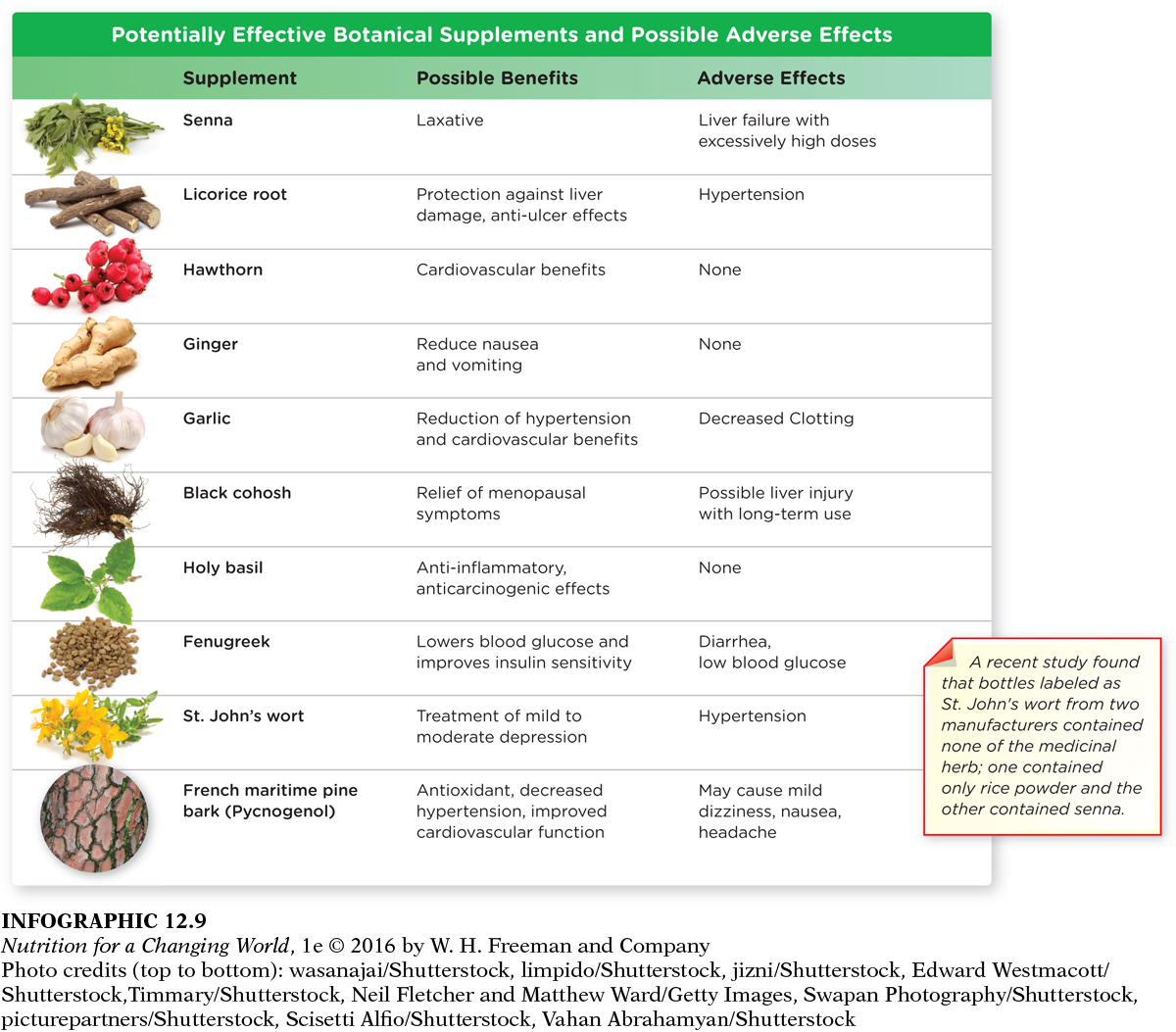Botanical supplements are valued for their medicinal or therapeutic properties to treat disease or maintain health. Botanicals include any supplement that is derived from plants, and may include liquid extracts, oils, or herbs. Herbal supplements are a subset of botanicals that are typically dried preparations of flowers, leaves, roots, bark, or seeds. They are less popular in the United States than vitamin and mineral supplements, but more than one-fifth of U.S. adults take them. There are 550 primary herbs with 1,800 names, but examples of some of the most common herbs sold in this country include echinacea, flaxseed, ginseng, ginkgo, saw palmetto, St. John’s wort, black cohosh, milk thistle, and garlic. (INFOGRAPHIC 12.9) From a medicinal perspective, herbs are less potent crude drugs and can have druglike effects, yet they do not undergo the same stringent approval process as drugs do. Sometimes, herbal supplements can contain biologically active ingredients and toxins in addition to their active “useful” components. Even though herbal supplements are often considered natural, they can still cause drug interactions and serious adverse effects and even exacerbate medical conditions; there is no legal definition for the term “natural,” and it certainly does not mean a product is safe or effective.
INFOGRAPHIC 12.9 Possible Adverse Effects and Benefits Associated with the Use of Herbal Supplements

Photo credits (top to bottom): wasanajai/Shutterstock, limpido/Shutterstock, jizni/Shutterstock, Edward Westmacott/Shutterstock, Timmary/Shutterstock, Neil Fletcher and Matthew Ward/Getty Images, Swapan Photography/Shutterstock, picturepartners/Shutterstock, Scisetti Alfio/Shutterstock, Vahan Abrahamyan/Shutterstock

 What adverse effects might you experience if you had purchased the bottle containing senna?
What adverse effects might you experience if you had purchased the bottle containing senna?